The CPI Kenya team is in Samburu and Baringo Counties to work on launching a Women’s Entrepreneur Network between women in opposing Samburu and Pokot tribes.
Every morning, we visit a restaurant in Suguta MarMar, a small town on the way to the Longewan, a Samburu village. I have a chapo mayai (chapati and fried eggs) with a Krest (the Kenyan version of Sprite). We’re regulars by now—the servers automatically including chili sauce for my order. After we finish breakfast, we head up the ~30 minute drive to Longewan.
In what was once a battlefield, now stand concrete houses and homesteads. Herders and their livestock roam up and down the countryside grazing. 10 years ago the Samburu people in Longewan and Pokot people in Plesian were at war with each other—raiding livestock and repaying raids with retribution. Hilary told me that at one point, over 40 people a year were dying from cattle raids. But in the 10 years since CPI Kenya finished its peace program between the two communities, development has boomed in both communities and deaths have drastically gone down—almost vanishing.
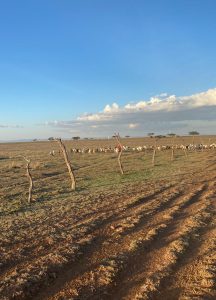
Longewan is filled with flat, wide open country like this. Here, a herder is taking livestock home at the end of the day.
With the Women’s Entrepreneur Network mission in mind, we spent 2 days following leads from select Longewan community members (teachers, chiefs, and businesswomen) to help us find 5 Samburu women to be part of the network. From morning to evening each day we drove across town—finding women, learning about their background, and getting consensus from mobilizers that the group dynamics would work well. We spent a lot of time trying to make sure the process was fair, and that political/familial biases didn’t play too big of a role—a soft science skill that pays off in droves!
We spent our 3rd day in Longewan visiting our list of women. We sat down with each woman and got to know more about her business, her needs and goals, and her relationship with Pokot customers. After our discussions, the women decided if they wanted to be part of the network. Then, I had the opportunity to interview each of them (don’t worry—more to come on who these fantastic women are!).
SNEAK PEAK:
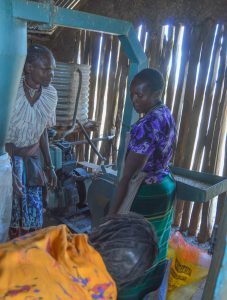
Josephine (right, purple shirt), part of the Samburu Women’s Entrepreneur Network, grinding maize for her Pokot customers on market day.
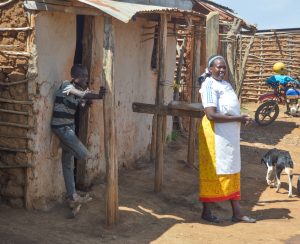
Margaret, a member of the Samburu Women’s Entrepreneur Network, stepping out of her restaurant for a quick break. On market days, when Pokot buyers come to Longewan, Margaret can serve over 100+ Pokot customers! In fact she was so busy this market day, when we went inside for lunch she didn’t have any food left.
After a rest day where the CPI Kenya staff visited an eco-conservancy for some fun and relaxation, we were back to Longewan!
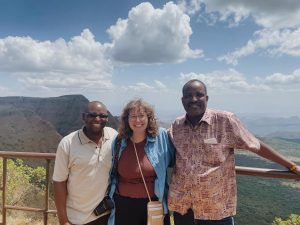
Francis, me, and Hilary posing at the eco-conservancy in front of views of the Rift Valley.
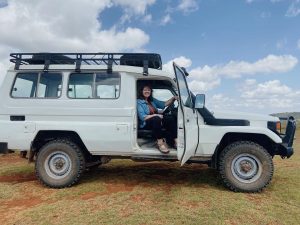
Me trying to look like I can drive a 2002 Toyota Land Cruiser. (I can’t, but it’s my goal to get Francis to teach me by the time I leave Kenya!)
On Monday July 4th, we gathered the group of 5 Samburu women and facilitated a group discussion to help them come up with a group business plan, goals, and decide how the network will promote inter-community peace between Longewan and Plesian. No spoilers… but the Samburu women even decided to create a social welfare emergency fund out of their savings plan to help their Pokot neighbors when needs arise. And after an extremely stimulating 2-hour discussion, the ladies surprised us with lunch and tea!
Now, we’re starting the process all over again in the Pokot village of Plesian.
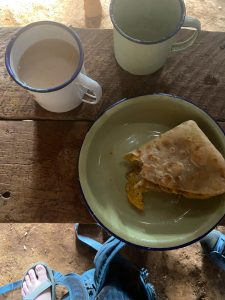
Quite possible the best eggs, bread, and tea I’ve ever had. Courtesy of Hilary’s friend who runs this restaurant in Plesian.
This first week in Samburu and Baringo counties was hard and inspiring. I’ve spent long days witnessing the Samburu and Pokot people’s resilience in the face of climate change. Right now it’s meant to be rainy season when farmers in Longewan harvest their maize crops… but for the past 2 years it hasn’t even rained long enough for stocks to grow… So gates to plots of withering plants are laid open for cows and goats to eat what remains with no hope that a harvest can come. This is the reality of climate change in Longewan. And it reaches into every crevice of life—it means people go hungry, their livelihoods are reduced, they can’t afford to send their children to school, and the domino effect goes on and on.
But initiatives like the Women’s Entrepeneur Network will help give women in Longewan and Plesian the support to keep adapting to the shocks of climate change in their life, all while building bridges of peace between the two communities.
And so we journey on—one chapo mayai at a time.
Stay tuned to learn more about Cow Camp, the Women’s Entrepreneur Network. On July 20th, you can contribute to the start ups via GlobalGiving!
Posted By Julia Holladay
Posted Jul 6th, 2022

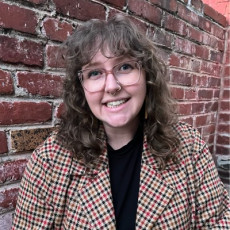
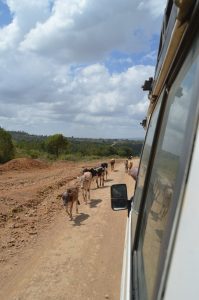

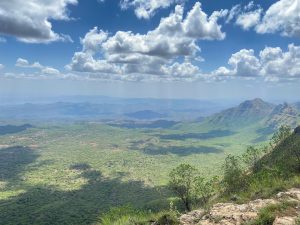
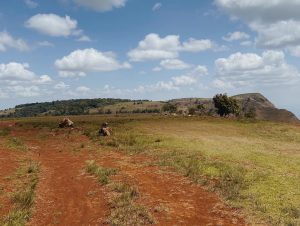
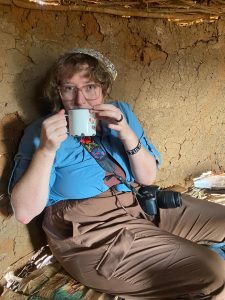
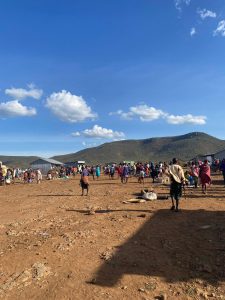
1 Comment
Iain Guest
July 10, 2022
This is another really strong blog, Julia! Such a great description of how the new network is starting to come together and how it is building on existing relationships and activities. For example, fascinating to hear that Margaret and Josephine (Samburu) and serving so many Pokot clients. Without the wholehearted and enthusiastic participation of the entrepreneurs on both sides, this cannot be sustained. I wonder if it will be so easy to form a network on the Pokot side? Look forward to learning more about that. Also, VERY keen to hear how the second start-ups (cows) is coming along. Finally – your appeal goes up on GlobalGiving this next week….